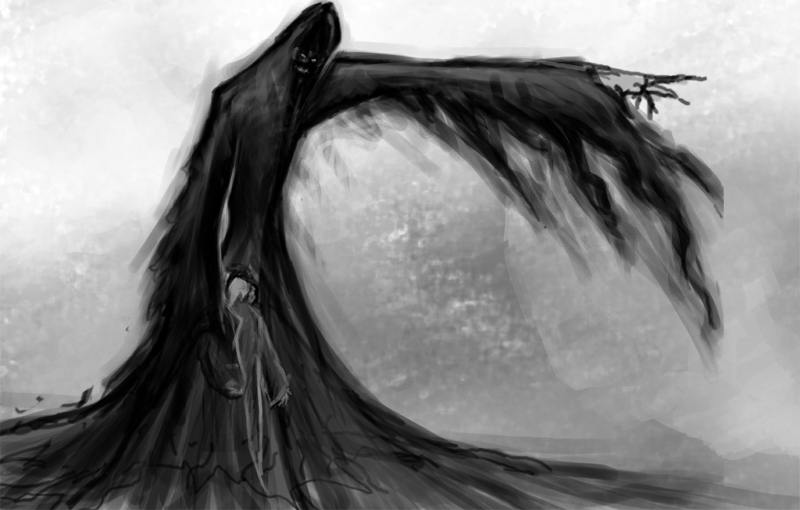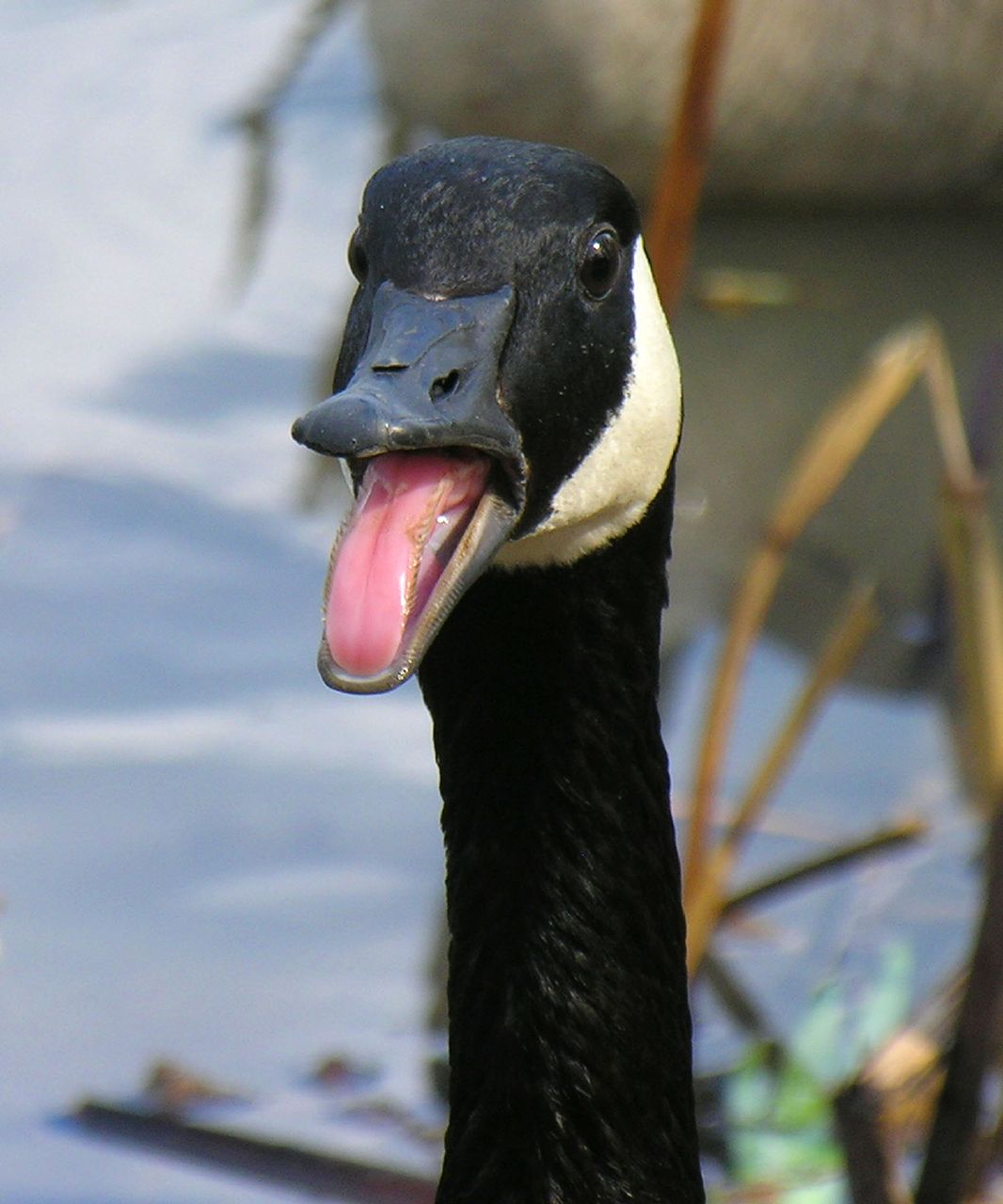This is the post wherein I seem to be referring to a common theme/experience among three books but in actuality I'm cramming three book reviews into one bloated post to catch up. But there is a similarity: I'm left with a feeling of unfulfillment at the close of each of these books, although not in a bad way, and for three different reasons. (Yes, I'm aware that "unfulfillment" is not a word, but I can't think of an appropriate synonym. Suggestions?)
Blackout, Connie Willis: Although
Blackout has a cliffhanger ending, it's also an appropriate intermission in a two-volume series.
Blackout is back in Willis's Oxford time traveling universe, of which you know I'm a fan from my posts on
To Say Nothing of the Dog and
Doomsday Book.
Blackout follows three young "historians" who've been sent to World War II to observe refugee children in the countryside, London during the Blitz, and the evacuation of Dunkirk. Of course, everything is all muddled and perilous, and then the "net" mysteriously closes and the protagonists are stuck. In her other time travel works, the Oxford theory is that "slippage" (ending up in a time different from one's coordinates) is the time continuum's way of self correcting and a sign that it's functioning properly. However, a new theory has emerged that slippage is a symptom of the time continuum breaking down--perhaps the historians will be trapped for good? Willis immerses this fast-paced adventure in fascinating historical detail, while considering its implications as a scientist and philosopher.
Lincoln's Dreams, Connie Willis: This book, published in the '80s, is a thematic precursor to
Passage. Lincoln's Dreams is about a Civil War researcher who gets involved with a traumatized woman dreaming Robert E. Lee's dreams (FYI, I don't get the title either). Willis was mulling over similar ideas (the spiritual, psychological, and scientific meaning of dreams and near death experiences) in
Lincoln but really succeeded in a well-rounded story and hypothesis in
Passage. Lincoln is a shorter, slower, bleaker work, and though its conclusion is not poorly devised, it does leave the reader in the dark (both in mood and in information). Willis's SciFi spends more time in the social sciences than other works of the genre, and this one has it in spades: psychologists with varying dream theories, unhealthy romantic attachments, obsessive-compulsiveness, and unusual suicidal tendencies. The characters' experiences rang true, but I felt deeply sad at the close, not only on behalf of the protagonists but from learning so much about Robert E. Lee, Lincoln, and the misery of the Civil War.
The Boy Who Couldn't Sleep and Never Had To, DC Pierson: This one is set in
high school, so you clearly have all the psychological issues present, albeit less sophisticated. It's a story about social outcast D

arren, who draws, and his best friend Eric, who doesn't sleep. It's one of a few stories that I feel genuinely portrays life in high school, minus the weird stuff--and it does get weird. If I split the book into thirds, the first part made me laugh very hard, the second part was agonizing and poignant, and the last part was positively nuts, with a sudden and (once again) indefinite conclusion. But if you were a nerd or a geek about anything in high school and were afraid the other kids would find out and mock you for it, I think you'll relate to these boys as much as I did (in spite of the sex, drugs, profanity, and poor parenting).
Okay, I've got a ton of extracted material below, but I promise they're worthwhile. Extract 1 describes Darren and Eric's work on their "movie trilogy and series of novels"; extract 2 describes the boys plotting revenge on Halloween; and extract 3 describes Darren's conflicting emotions when Eric confides to him that he doesn't sleep. I think, as a teenager, I spent most of my life feeling the way Darren does in extract 3.
"By October we have three notebooks full of concept art for TimeBlaze. By this time Dr. Praetoreous, instead of being the main character, is just another player in a universe of characters, including the Praetoreous family (each of whom is actually another version of Dr. Praetoreous in a different timestream, so there's cowboy Praetoreous and postapocalyptic Praetoreous and two-dimensional Praetoreous in a universe rendered in 2D), the Time Squad (the Temporal Ranger's extended posse of villains, rogues, and scoundrels from the outskirts of time), and an entire pantheon of gods drawn from the Greek, Aztec, Indian, and Chinese mythologies who have been summoned by The Man using Dr. Praetoreous's invention known as The Mortalizer....
I am proud of the way, in this one drawing, the Aztec god Quetzalcoatl seems to be almost 3D, his feathered tail way off in the distance in the bottom right corner of the page and his semi-reptilian head roaring toward you in the top left as The Man stands passively at the top of an ancient South American ruin, directing the newly Mortalized god to go out and f*ck sh*t up."
"What we have on the kitchen counter five minutes later makes it pretty clear we've never gotten revenge on anybody. Half a dozen eggs leftover from two weeks ago when my dad made breakfast for a woman who stayed over on a Saturday night. Processed, individually wrapped yellow cheese slices because I feel like I remember seeing or reading about a prank involving cheese slices somewhere, but maybe it was an art project, not a prank. Some rope from the garage, just in case we have to rappel up or down something. Neither of us knows how to rappel, in fact I've always counted myself lucky that our school doesn't have that rope-climbing thing as part of PE like you see in movies. But rappelling seems like something you do as part of getting really excellent revenge. We could also use the rope to hang somebody in effigy, if we decide to go that way. But again, that's straying into art-project territory.
It also seems like a good time to spray-paint somebody's house or car, but we don't have any spray paint. We have a can of wood-staining stuff from the time my dad painted our deck. It's not even technically paint, and it's heavy as hell. Also, we have some flashlights.
'It looks like we're going to make an omelet,' Eric says, 'rappel in through somebody's window, and serve it to them.'
'You read my mind,' I say. Eric laughs.
We go out the door without much of a plan and everything in a paper grocery bag, becoming two of a ton of kids out tonight with some rotten eggs and bad intentions but probably the only ones with a can of Home Depot store brand chestnut wood stain."
"For a second I let myself live in a world where what Eric's said is the truth, where all the evidence that it's true isn't a pack of lies to be debunked. In this world my betrayal and confusion about how to feel about this kid is replaced with relief, and my heart swells and my brain practically explodes out of the front of my head at the idea that this is actually happening to me. Then I put one mental foot back into the mundane world of Eric being crazy or a liar or both, where we say 'yeah, sure, okay' even in response to the smallest stuff it's easy and low-stakes to believe. I go back and forth feeling my heart get either huge and kid-like or small and full of poison."
 te excellent mystery novels as well. I read Black Sheep, a romance, first, which was a good bit of fun: Think Jane Austen that has a modernized mindset and is more lighthearted comedy than social satire. Then I read Why Shoot A Butler?, which I absolutely loved. It's a good enough plot (I never have a clue who the guilty party is, so I'm not an expert), but the sarcastic protagonist, witty dialog, and memorable characters are what really makes it worthwhile. It reminds me of Wodehouse, especially the clever butler and the Bingo Little facsimile. I've never been big on mysteries. I've read a couple by Agatha Christie and Dorothy Sayers, and I can't understand why Heyer isn't more famous. I've requested several more from our library and am currently enjoying Footsteps in the Dark, a comedy of errors/mystery set in an old country house in England, of course!
te excellent mystery novels as well. I read Black Sheep, a romance, first, which was a good bit of fun: Think Jane Austen that has a modernized mindset and is more lighthearted comedy than social satire. Then I read Why Shoot A Butler?, which I absolutely loved. It's a good enough plot (I never have a clue who the guilty party is, so I'm not an expert), but the sarcastic protagonist, witty dialog, and memorable characters are what really makes it worthwhile. It reminds me of Wodehouse, especially the clever butler and the Bingo Little facsimile. I've never been big on mysteries. I've read a couple by Agatha Christie and Dorothy Sayers, and I can't understand why Heyer isn't more famous. I've requested several more from our library and am currently enjoying Footsteps in the Dark, a comedy of errors/mystery set in an old country house in England, of course! ing stories about a choir member sheltering a homeless man and his pregnant wife in the church nursery, an unpleasant man trapped in a busy toy store at Christmastime, and an interesting new role for the Christmas Carol ghosts. The very short story Pony (the name says it all) cracked me up. However, I think Willis's introduction was most resonant for me. I told Chris afterwards that it was better than any Midnight Mass homilies I've heard. She's just talking about why she likes Miracle on 34th Street and A Christmas Carol, but her comments get to the heart of the matter.
ing stories about a choir member sheltering a homeless man and his pregnant wife in the church nursery, an unpleasant man trapped in a busy toy store at Christmastime, and an interesting new role for the Christmas Carol ghosts. The very short story Pony (the name says it all) cracked me up. However, I think Willis's introduction was most resonant for me. I told Chris afterwards that it was better than any Midnight Mass homilies I've heard. She's just talking about why she likes Miracle on 34th Street and A Christmas Carol, but her comments get to the heart of the matter.










